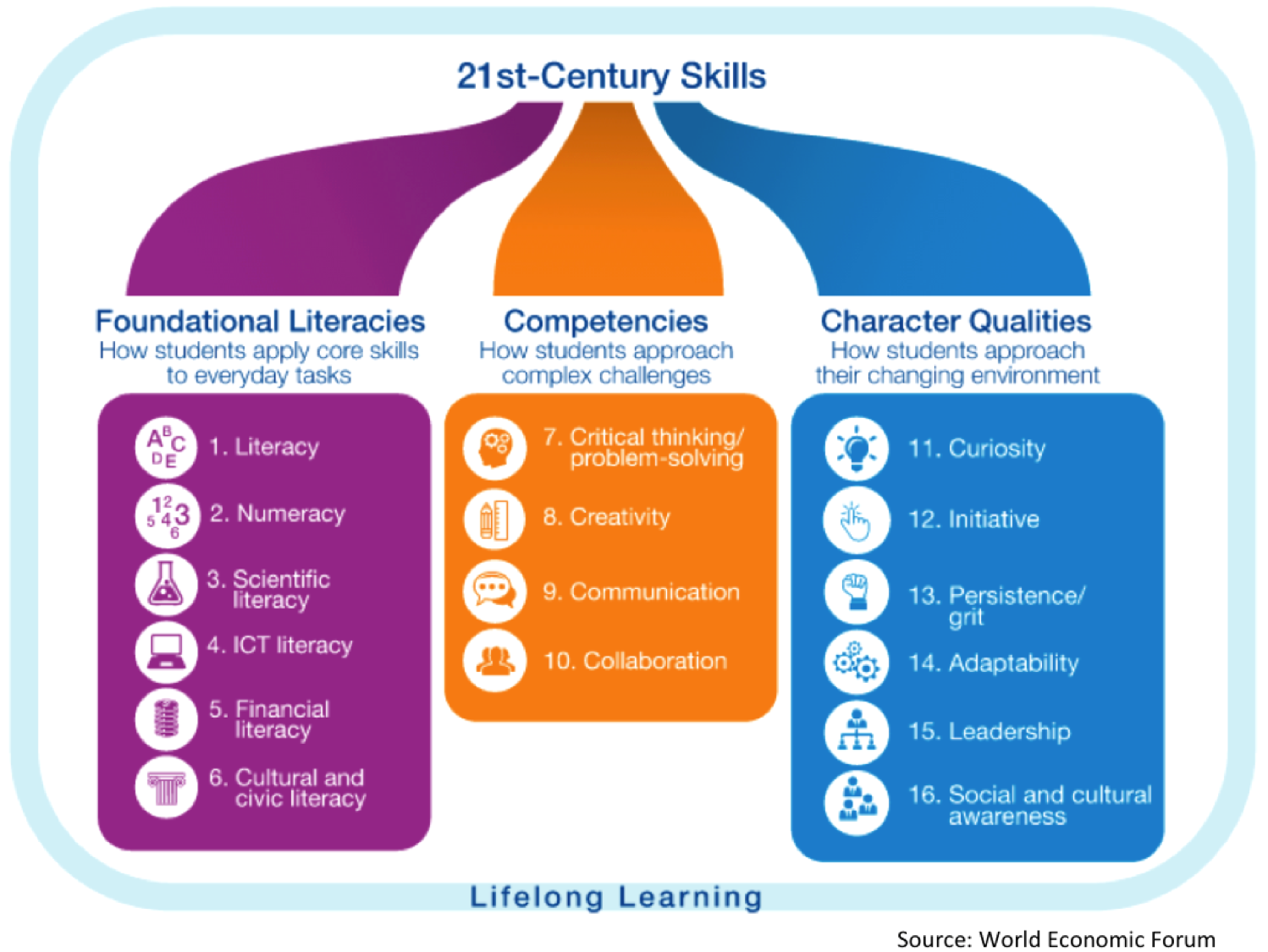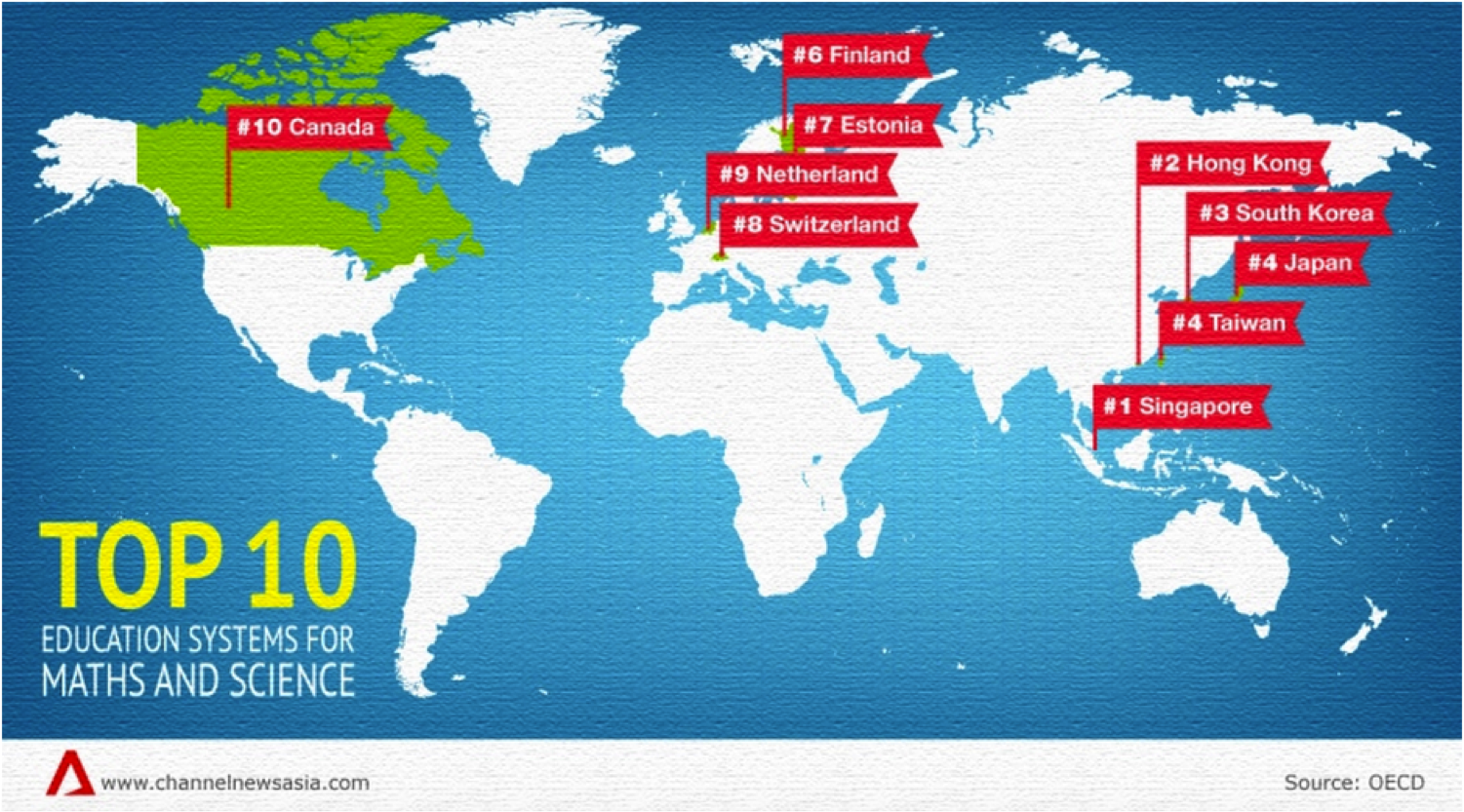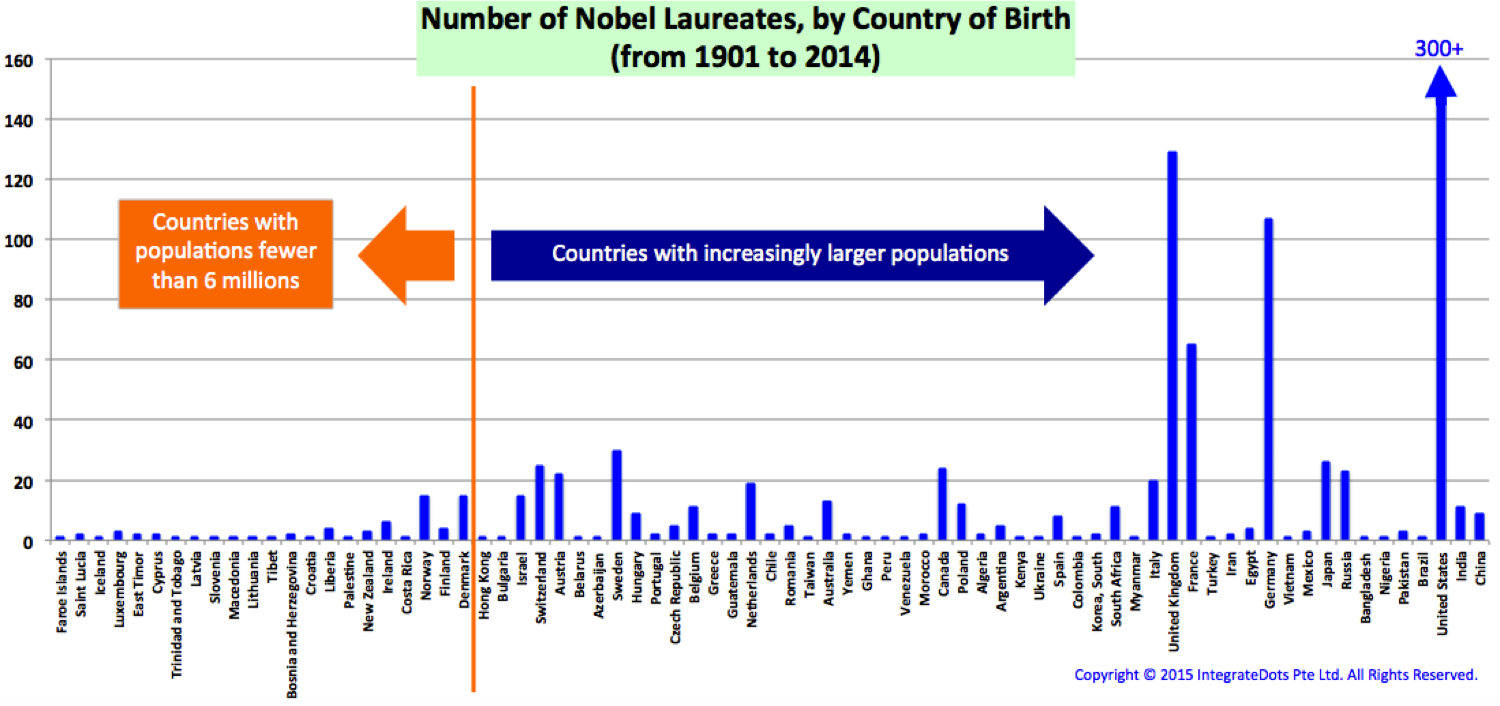The 21st century economy requires new mind-sets, different knowledge and skills. Unfortunately, traditional schools, where didactic teaching is still prevalent, fall terribly short of what’s required in this new dynamic, fast paced and increasingly interconnected global economy. This post from World Economic Forum sums up what are skill sets required in the 21st Century marketplace.
Among the 16 key skills listed above, the two most difficult (and most valuable?) skills to have are critical thinking and creativity. These two skills, especially creativity, cannot be easily taught in classroom. A better approach is to have these skills caught rather than taught. Perhaps, allow open-minded and unstructured learning environment to encourage critical thinking and creativity?
Many countries yearn to have their own Silicon Valleys. They want to have the Silicon Valley type of creativity and innovations to spur their economies. They have tried all means to replicate the Silicon Valleys’ ecosystem (both the hardware and software). Despite spending a humongous amount over many years to build the high capital infrastructures such air hubs, science parks and implement tax incentives to lure big name MNCs to set up R&D labs, notable successes in innovations and creativity have proved to be mostly elusive. Singapore is one example. Why?
There are several reasons. In this post, we’ll focus on one – Singapore’s exam-centric education system.
The Singapore education has ranked consistently high among developed countries in the TIMSS (Trends in International Mathematics and Science Study). It produces high averages; even the bottom 25% percentile score higher than the world’s median. In the 2015 OECD Global School Ranking, Singapore tops the list of Maths and Science (for 15 year-olds), ahead of many advanced first world countries such as Germany (13th), Australia (14th), New Zealand (17th), UK (20th), France (23rd), and US (28th).
Despite such good showing, detractors of the Singapore education system question why the country has not produced a single Nobel laureate. There are countries with smaller populations than Singapore which have produced Nobel laureates (e.g. New Zealand produced 3 laureates) . Among the “Four Asian Tigers”, Singapore is the only country that has not produced a Nobel laureate. Taiwan clinched the Nobel prize for Chemistry in 1986, Hong Kong for Physics in 2009, and South Korea for Chemistry in 1987 and Peace in 2000. Here’s a list of Nobel Laureates by Country of Birth.
Over the decades, the education system in Singapore has launched many initiatives to sharpen students’ thinking skills. The “Teach Less, Learn More” is one such initiative. The Ministry of Education (MOE) has recognized the importance of equipping students with 21st century skills for the globalized workplace. These initiatives aim to nurture students to become confident, creative and independent thinkers.
Despite these efforts, majority of students have not made the leap to become more entrepreneurial and critical thinkers. Comparing Singapore’s education system with those of other developed countries, one stark difference is that the Singapore system over-emphasizes on examinations. As a result, the initiatives to equip students with 21st century competencies have not produced the desired outcomes fast enough.
Since independence, Singapore’s development has been nothing short of spectacular. The country has not encountered any major disasters or civil unrests. The peace and prosperity enjoyed by Singapore over the past decades has lulled large segments of its population into contentment. Foreigners often comment that life in Singapore is too sheltered and structured.
Singaporean students are constantly exhorted to study hard and do well in exams so that they will be rewarded with abundant opportunities to succeed in life later. Hence, many Singaporean students pursue academic excellence single-mindedly. Students are trained to be exam-smart and would typically ace exams through the rote learning approach. Academic excellence is seen by many as the “end all and be all”.
It is therefore of little surprise why many students avoid speaking up, are adverse to risk taking and do not find motivation to think out of the box and experiment with new ideas.



